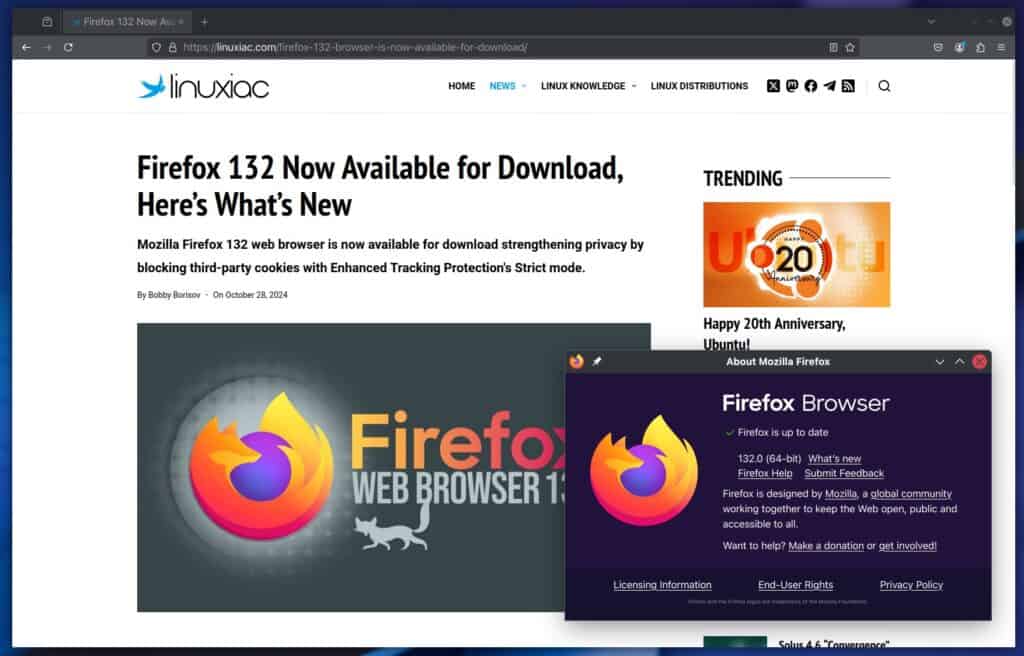Almost a month after the previous 131 release, Mozilla released a new version of its widely used open-source browser, Firefox v132, now available for download.
First and foremost, the update enhances privacy by expanding the capabilities of Enhanced Tracking Protection in Strict mode. This new version now blocks third-party cookie access, making your browsing experience even more secure from potential trackers.
Moreover, for those who enjoy a vibrant online visual experience, Wide Color Gamut WebGL is now available for Windows and macOS users. This means a more vivid color range for videos, games, and images, making content look even better on screen.
Additionally, WebRender—the hardware-accelerated rendering engine—now supports more SVG Filter Primitives, significantly improving the performance of graphic-heavy content.
For media lovers, Firefox 132 also introduces Microsoft PlayReady encrypted media playback for select sites on Windows, supporting 1080p and 4K Ultra HD streaming. This enhancement improves video quality and reduces battery usage, delivering a better experience when watching movies and shows.

Mac users also receive some added convenience, with support for the new screen and window sharing selection features in macOS 15 and later, along with improvements to session resume, ensuring Firefox restarts as expected after a system update.
On the bug fixes side, the Firefox team has included a fix for MFSA 2024-51, ensuring security vulnerabilities are addressed. In addition, Firefox now blocks HTTP-favicons unless they can be received over HTTPS, continuing efforts to improve security for mixed content.
Android users will notice that Firefox has made some changes to improve usability. For instance, the address bar’s default position for new users has moved from the bottom to the top of the screen.
Users can still customize the toolbar position as they prefer. Another useful update is the “Copy Without Site Tracking” feature, which is now greyed out when no tracking parameters are detected.
Firefox 132 also brings some changes for web developers. Due to compatibility issues, support for HTTP/2 Push has been removed. Additionally, the “requestVideoFrameCallback()” method is now available, allowing developers to execute operations on each video frame efficiently.
Lastly, for enhanced security, the browser introduces a post-quantum key exchange mechanism for TLS 1.3 and also supports Certificate Compression, reducing the size and speeding up TLS handshakes.
Those eager to get it can download the latest version directly from Mozilla’s server. Windows and macOS users can expect an over-the-air update within the next day. Users on rolling release Linux distros should look for the new Firefox 132 as an update in their repos over the next few days.
